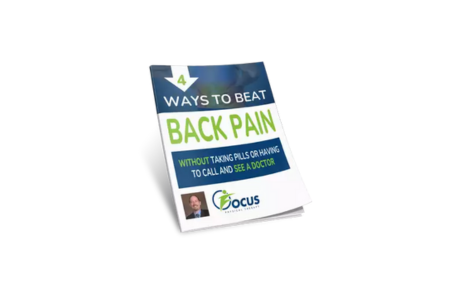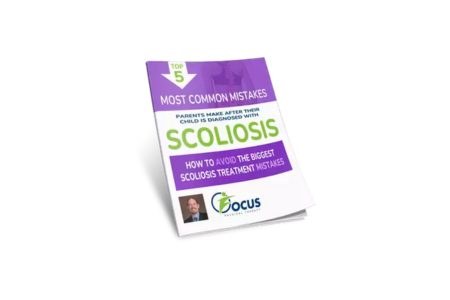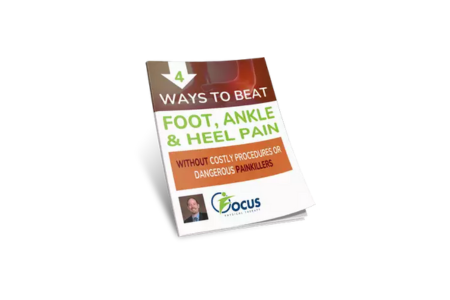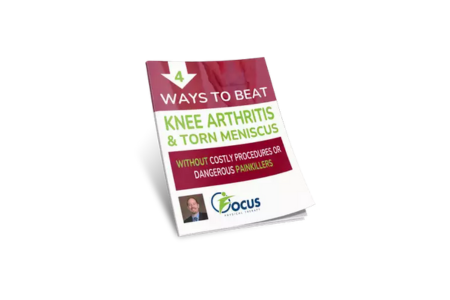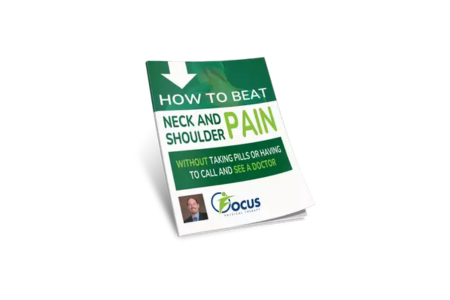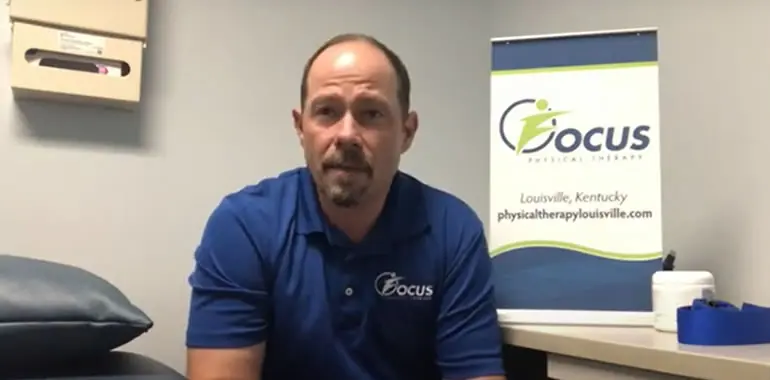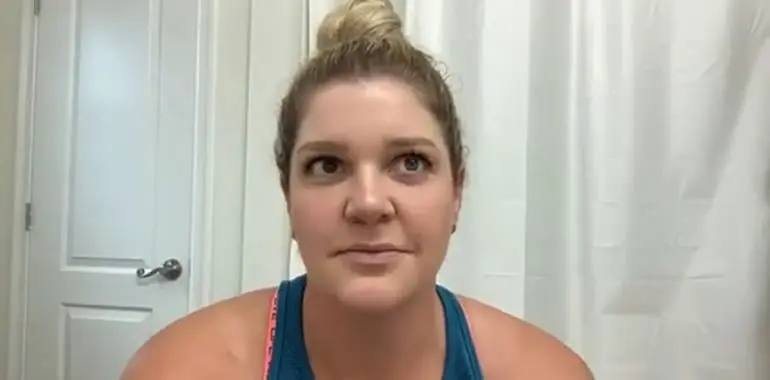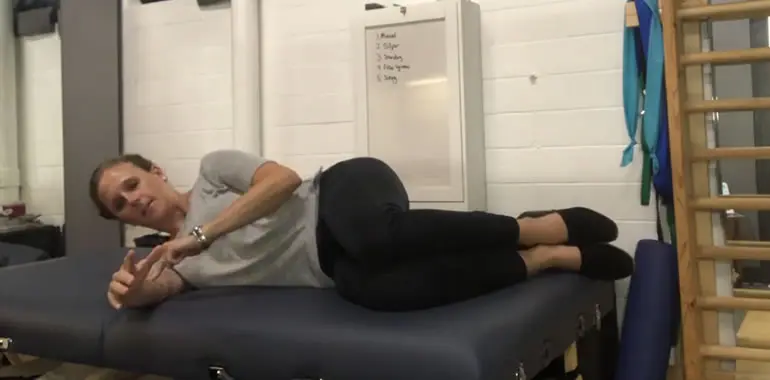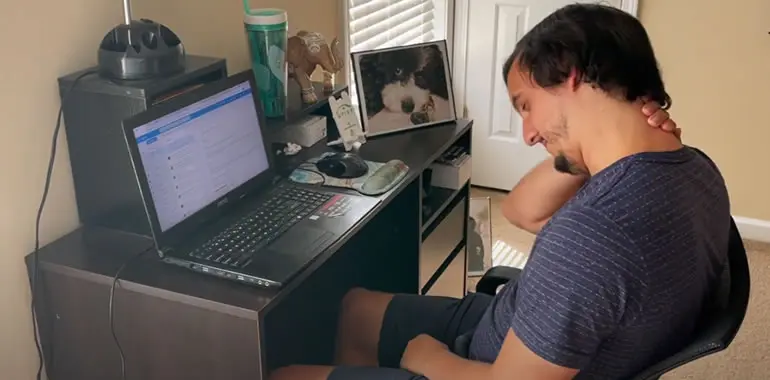What’s The Real Cause Of My Upper Back Pain?
- Dr Brad Conder

While upper back pain is less frequent than neck or lower back pain, many men and women still experience upper back pain.
In physical therapy, we refer to this type of pain – in the upper portion of your back – as thoracic spine pain (TSP).
But what causes upper back pain and what can you do to prevent it?

Well, it could be a whole host of things. But it’s only possible to tell the specific cause of your upper back pain by performing a physical evaluation and understanding your medical history. But some of the leading causes are:
Weak muscles and poor posture: While muscles can be strengthened or conditioned via weight training or exercises, they can also weaken or decondition if you don’t use them properly.
E.g., The back muscles can become weak or deconditioned when you continually adopt a poor posture over a long time.
Slouching is the principal cause of poor posture, and the weak muscles get sore and painful over time.
In addition, when you sit or stand in a slouched position, extra pressure is on your ligaments, connective tissue, spinal disks, and neck, which can lead to issues.
But maintaining good posture as much as possible, taking breaks, stretching, and moving can prevent your muscles from deconditioning.
Of course, daily exercise is also helpful. But if you suffer from chronic upper back pain or any other type of pain, we recommend you consult a physical therapist to get a customized exercise regimen.
Overuse of muscles: Another reason for upper back pain is strain or overuse of back muscles. It mainly occurs due to repetitive motions for an extended period, at work or while playing sports. This repetition can lead to the following:
- Muscular Strain
- Tightness In The Upper Back
- Soreness or Irritation in the area
If you work in a profession or perform other activities or sports that require repetitive movements, you’re more likely to suffer from symptoms associated with the overuse of upper back muscles.
For example, if you work in the construction industry, where you have to lift heavy items above your shoulders throughout the day, you will be more prone to pain in the upper back.
The initial symptoms of muscle overuse include soreness, pain, and irritation. If you don’t seek treatment for these symptoms, the symptom can become chronic and difficult to treat over time.
You can ease and/or prevent the symptoms of muscle overuse by getting sufficient rest and sleep and using hot/cold compression to improve circulation and reduce inflammation in the back.
You should also ensure that you take periodic breaks during the day. But again, visiting a physical therapist is the best course of treatment and prevention.

Injuries And Trauma
- Tripping or falling
- Workplace accident
- Being in a car collision
- Excessive workouts at the gym
- Lifting heavy weights incorrectly
After an accident, trip, slip, or fall, the damage is usually apparent immediately – with pain appearing directly after the incident. However, sometimes the symptoms don’t develop until much later.
Traumatic injuries like these can be minor or significant, with the latter increasing your risk of chronic damage and delayed pain.
After a physical evaluation, we can usually determine whether your upper back pain relates to an old accident and take steps to fix it.

Other Causes Of Upper Back Pain
Herniated disk: While we primarily see herniated disks in the lower back, they can also manifest in the upper back (thoracic) region.
Every vertebra in your spine has a soft rubbery cushion/disk between them. When these protrude through and place stress on your spine, we describe them as “herniated disks.”
Even slight pressure on these disks can lead to pain, weakness, or numbness in the legs or arms.
Rest combined with anti-inflammatory medication and physical therapy generally helps to relieve the symptoms.
Pinched nerve: When a slipped/herniated disk puts pressure on a nerve, it leads to a “pinched nerve.” This pinching can sometimes cause the following:
- Loss of control or weakness in leg movements
- Urinary incontinence in some patients
- Pain and numbness in the legs or arms
If a slipped disk causes a pinched nerve, the treatment is similar – rest and physical therapy.
In some instances, steroid injections in the spine may help, but we always recommend physical therapy first.
Osteoarthritis: When your upper back pain is not muscular, it could be an issue with the joints and bones in the upper back.
The cartilages that protect the bones in this area tend to deteriorate as we age. This process is known as “osteoarthritis.”
It is the most common cause of upper back pain in the elderly. Over time the cartilage may completely wear off, leading to friction between bones and pressure on the nerves.
Osteoarthritis can also lead to a tingling sensation or numbness in the legs and arms.
If you suspect osteoarthritis, you should consult a physical therapist for a diagnosis and treatment to manage the pain and retain functionality.
Osteoarthritis is mostly irreversible, but we can prevent progression and lessen the pain and other symptoms.
Myofascial pain: Upper back pain can also arise from connective tissue. Like the rest of the body, the upper back has layers, and layers of connective tissue called the fascia.
When pain originates from this tissue, we refer to it as “myofascial pain.” It can occur because of overuse or injury, with chronic pain sometimes developing many years after the initial injury.
Treatment for myofascial pain is usually physical therapy and myofascial release to free up the fascia and reduce pain and tension.

Other Causes Of Upper Back Pain
Infection of the spinal cord: A spinal infection is a rarer (highly unlikely) reason you might have upper back pain.
Spinal infections happen when an abscess with pus and germs forms between the spine’s bones.
These abscesses grow in size and cause swelling and pain. Getting an early diagnosis is crucial for treatment and to avoid complications.
Antibiotics should do the job, with surgery only done in rare cases. Spinal infections are life-threatening if not diagnosed and treated early.
But they are extremely rare and come accompanied by other symptoms such as redness and inflammation, fever, and feeling unwell.
Lung cancer: Another infrequent cause of upper back pain is lung cancer. If left undiagnosed and untreated, the disease can spread to the bones and become life-threatening. But again, this is rare.
A few other causes of upper back pain are:
- Spinal deformity of any kind
- Fibromyalgia
- Scoliosis of the spine
- Problematic kyphosis

How To Prevent Upper Back Pain
Prevention is always better than cure. Even if you have mild back pain already, you can prevent it from getting worse by taking some of the following measures:
If you work at a desk for extended periods, take regular breaks to stand up, walk around the block (or office), and stretch your neck, shoulders, and upper and lower back muscles.
Likewise, when you’re lying down or sitting for a long time – watching TV or while traveling by plane, train or car, do a few stretching exercises for the neck and upper back at regular intervals.
Before exercising or any other strenuous activity, twist, stretch, and warm up the different muscle groups. But for the best results, you should get a physical therapist to teach you how to do this properly to prevent further injury.
When your muscles are stressed and tight, it can worsen upper back pain. Regular massage can help reduce muscle tension and upper and lower back pain.
If you need to lift something heavy, remember not to twist your back or apply extra pressure to the spine. Instead, keep your back straight and bend at the knees – not through your back.
You should avoid carrying heavy and cumbersome backpacks or other bags on your shoulders for too long. If you must, take regular breaks and put the bag down on the ground while stretching your muscles.
Work with a physical therapist to strengthen and improve your muscle and joint flexibility in the upper back and the rest of the body (the whole body works together as one).
If your back muscles are weak, but you use your back muscles a lot for work, consider using back support temporarily to support the muscles and prevent muscle fatigue.
But the best prevention is strengthening the muscles, so they don’t need support.
"Tell Us Where It Hurts..."
And We’ll Send You Our Best Advice And Top Tips In One Special Report...
It’s FREE! Just Look Below And Find The One That Works Best For You...

